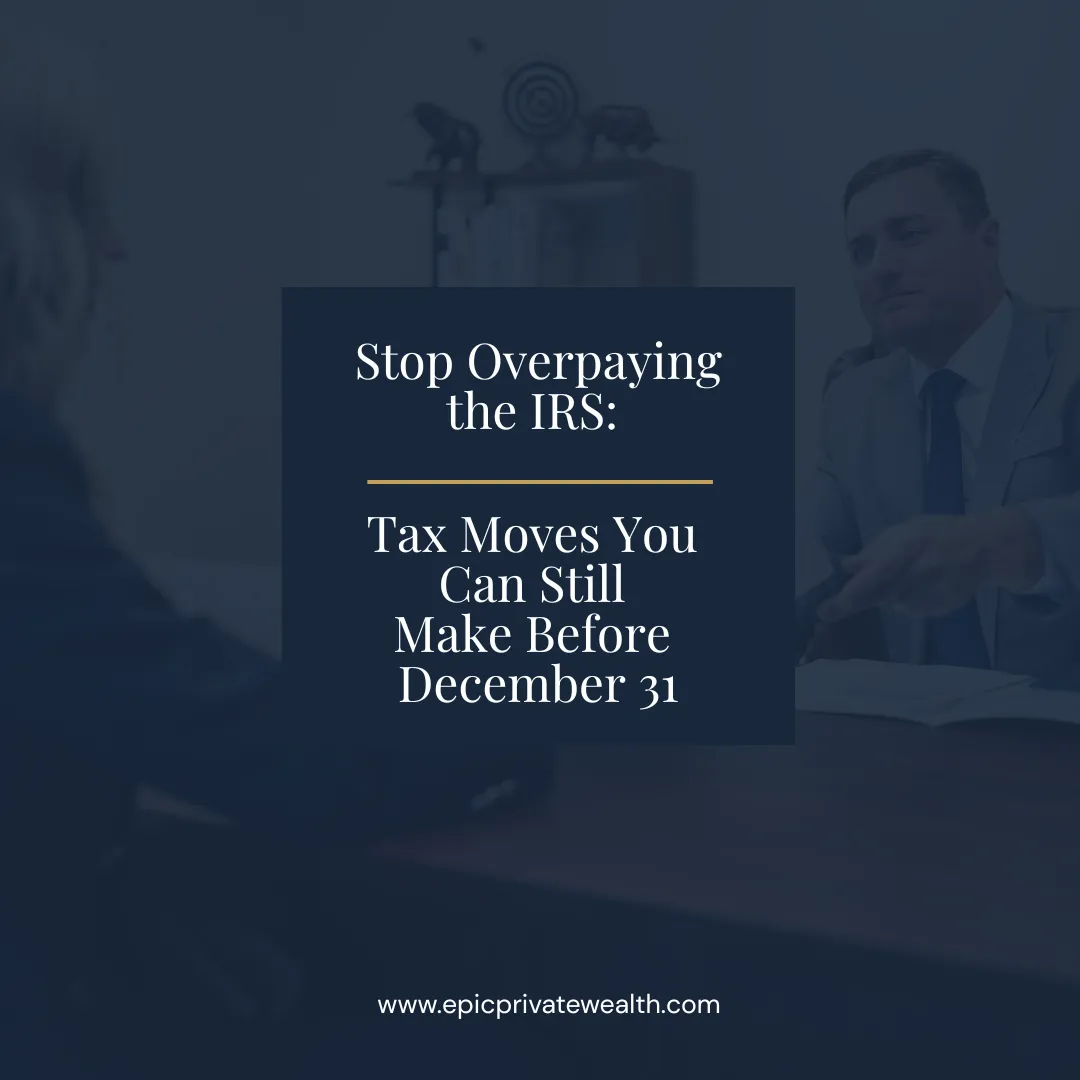
Stop Overpaying the IRS: Tax Moves You Can Still Make Before December 31

Picture this:
It’s January. You’re sitting at your kitchen table, coffee in hand, W-2s, 1099s, and that weird folder your accountant told you to “just keep handy” all spread out.
You feel pretty good about your year — business grew, investments paid off, and you even finally took that long-overdue vacation.
Then your tax bill arrives.
And just like that… your coffee turns bitter.
“How did I owe that much?”
“Wait — isn’t this what my CPA is for?”
“Where were the strategies? The loopholes? The magic?”
Here’s the not-so-fun truth: filing taxes is not the same as planning for them.
And if you wait until January to “deal with it,” you’ve already missed the best part — the part where you actually save money.

You Might Be Overpaying If...
Most high-income individuals — especially business owners and those preparing for retirement — are unintentionally giving the IRS more than they need to.
Why?
Because no one told them that the real tax moves happen before December 31.
If you want to pay less, keep more, and head into the new year feeling like a financial genius (not a frustrated taxpayer), here are 5 strategic tax moves you can still make this year:

1. Reassess Your Income & Withholdings
Did your income increase this year? Land a bonus? Sell a property?
If so, your current tax withholding or estimated payments may no longer cover your actual liability — which could result in penalties (and panic).
Strategy Tip: Run a tax projection now. Not in April. Now.

2. Max Out Retirement Contributions
401(k)? SEP? Solo 401(k)? These aren’t just savings vehicles — they’re powerful tax shelters.
The more you contribute (within IRS limits), the more you reduce your taxable income.
Bonus Tip: Catch-up contributions for 50+ can make a huge impact — especially if you’re approaching retirement.

3. Leverage Charitable Giving
Thinking of donating before year-end? Good news — this is a great time to bundle contributions for bigger deductions or set up a Donor-Advised Fund (DAF) to give now and grant later.
Pro Move: Gift appreciated assets instead of cash. You’ll avoid capital gains and still get the deduction.

4. Harvest Investment Losses (or Gains)
It’s not just about how much you made — it’s how smart you were about what you sold.
Tax-loss harvesting lets you offset gains with losses strategically. Or if your income is unusually low this year, it might be a great time to realize gains at a lower tax rate.
Smart Tip: Coordinate with your financial advisor to make this part of your annual portfolio review.
(Epic automatically does this for you. All the professionals you need under one roof)

5. Book a Year-End Tax Strategy Session
This isn’t about “checking the box.” It’s about building a blueprint that saves you money both now and later.
Think of it like this: You wouldn’t wait until April to plant your garden. Don’t wait until tax season to start planning your taxes.
Tax Prep ≠ Tax Strategy
Your CPA is essential — but they often work backward, filing what already happened. A strategist works forward, helping you design what’s possible.
And when you have income, investments, and maybe even employees or retirement goals?
You need someone asking the right questions before it’s too late.
The IRS isn’t going to tell you you’ve overpaid.
But we can help that NOT happen to you.
